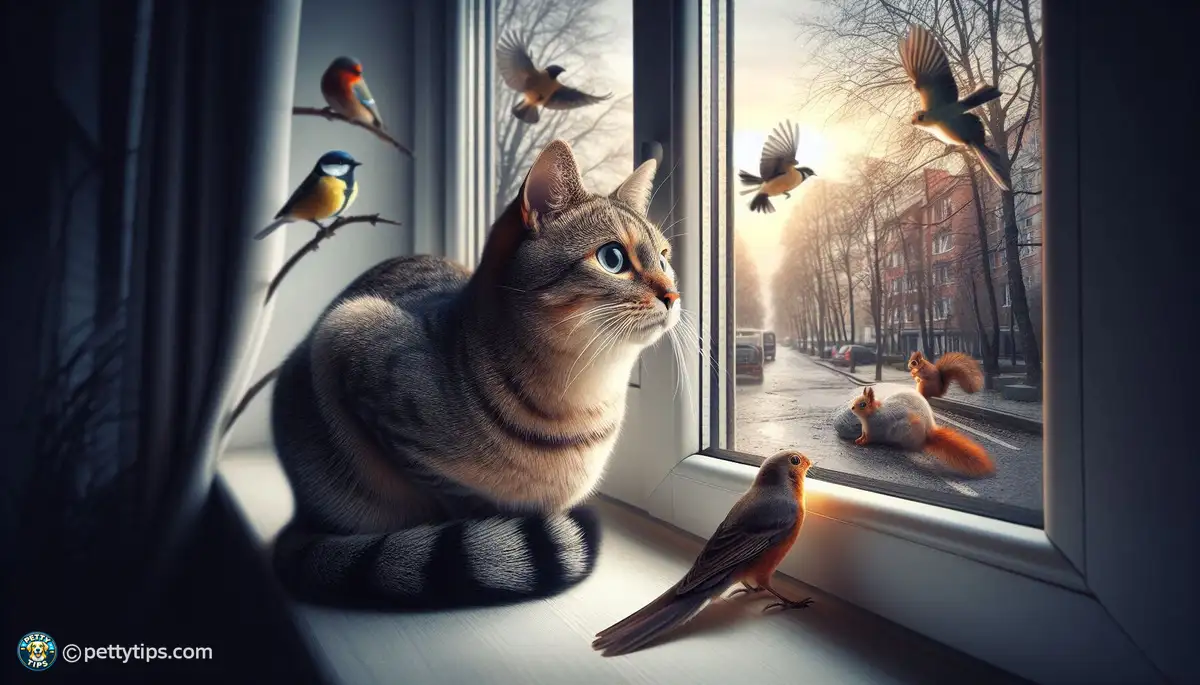- Home
- Cat Behavior
- Indoor vs. Outdoor Cats: Impact on Hunting Instincts
Indoor vs. Outdoor Cats: Impact on Hunting Instincts

The Evolution of the Hunting Instinct
Cats have been renowned throughout history for their hunting prowess. This instinctual behavior dates back to their wild ancestors, who relied on hunting for survival. Over thousands of years, domestic cats have retained this instinct, even though their lifestyle has drastically changed. Understanding the origins of this behavior is crucial in comprehending its significance in both indoor and outdoor cats.
The Role of Hunting in Cat Behavior
Hunting isn't just a hobby for cats; it's a fundamental aspect of their behavior. The act of stalking, chasing, and capturing prey fulfills their natural instincts and provides mental and physical stimulation. Even in domestic settings, where food is readily available, the urge to hunt remains deeply ingrained. This behavior isn't solely driven by hunger; it's an instinctual need deeply rooted in their genetic makeup.
Factors Influencing Hunting Behavior
Several factors influence a cat's hunting behavior, including genetics, environment, and early experiences. While genetics play a significant role in determining a cat's predisposition to hunting, environmental factors can either enhance or suppress this behavior. Cats raised in environments where hunting is encouraged or necessary are more likely to exhibit strong hunting instincts compared to those raised in controlled indoor environments.
The Impact of Indoor Living on Hunting Instincts
Challenges of Indoor Living
Indoor cats lead vastly different lives compared to their outdoor counterparts. While indoor living offers safety and security, it also presents certain challenges, particularly concerning their hunting instincts. Limited access to natural stimuli and prey can lead to frustration and boredom, potentially resulting in behavioral issues such as excessive meowing, aggression, or destructive behavior.
Compensating for Instinctual Needs
As responsible pet owners, it's essential to recognize and address the innate hunting instincts of indoor cats. Providing enrichment activities that mimic hunting behaviors can help satisfy their natural urges and prevent behavioral problems. interactive toys, puzzle feeders, and simulated prey play are effective ways to engage their hunting instincts and provide mental stimulation. Additionally, creating indoor environments that offer opportunities for exploration and sensory stimulation can help fulfill their instinctual needs.
Managing Indoor Cat Behavior
Managing the behavior of indoor cats requires a proactive approach that addresses both their physical and psychological needs. Regular play sessions that incorporate hunting-like activities not only provide exercise but also fulfill their natural instincts. Creating a stimulating indoor environment with hiding spots, climbing structures, and window perches allows cats to engage in natural behaviors such as stalking and observing prey. By catering to their instinctual needs, pet owners can help prevent behavioral problems and ensure the well-being of their indoor companions.
Nurturing Hunting Instincts in Outdoor Cats
Benefits of Outdoor Exploration
Outdoor cats have the opportunity to indulge in their hunting instincts freely. Exploring outdoor environments provides a plethora of sensory stimuli, including sights, sounds, and scents, that stimulate their natural behaviors. Hunting becomes more than just a means of acquiring food; it's a form of mental and physical exercise that fulfills their primal instincts and contributes to their overall well-being.
Natural Hunting Behavior
In outdoor settings, cats have the freedom to exhibit their full range of hunting behaviors. From stalking birds in the bushes to pouncing on unsuspecting insects, outdoor cats engage in a variety of hunting techniques that mimic their wild counterparts. This natural form of enrichment not only satisfies their instinctual needs but also fosters a sense of independence and self-sufficiency.
Managing Outdoor Cat Behavior
While outdoor exploration is enriching for cats, it also poses certain risks and challenges. Pet owners must take precautions to ensure their outdoor companions remain safe and healthy. Providing regular veterinary care, including vaccinations and parasite prevention, is essential in safeguarding their well-being. Additionally, implementing measures such as supervised outdoor time, enclosed outdoor enclosures, or catios can help mitigate potential dangers while allowing cats to enjoy the benefits of outdoor living.
Conclusion
Understanding the impact of indoor and outdoor environments on the hunting instincts of cats is crucial for pet owners. While indoor living presents challenges in fulfilling their instinctual needs, proactive measures can help alleviate behavioral issues and promote their well-being. Outdoor exploration offers opportunities for natural enrichment but requires careful management to ensure the safety of cats. By recognizing and addressing their innate hunting instincts, pet owners can create fulfilling environments that support their cats' physical and psychological health.
